Social Sciences Section
Working on cultural, political and economic change

The world is placed in our hands.
We are responsible.
No one else.
Every single person can be the starting point of a new future. At any time.
The Section for Social Sciences at the Goetheanum is concerned with how we can become capable of social reorganisation in our own lives and actions, in culture, politics and the economy.
It sees its task in researching the conditions and laws that make it possible to act in an appropriate and humane way in a social context. And it wants to train and help develop those abilities and institutions through which humane living conditions can arise in society.
Threefolding
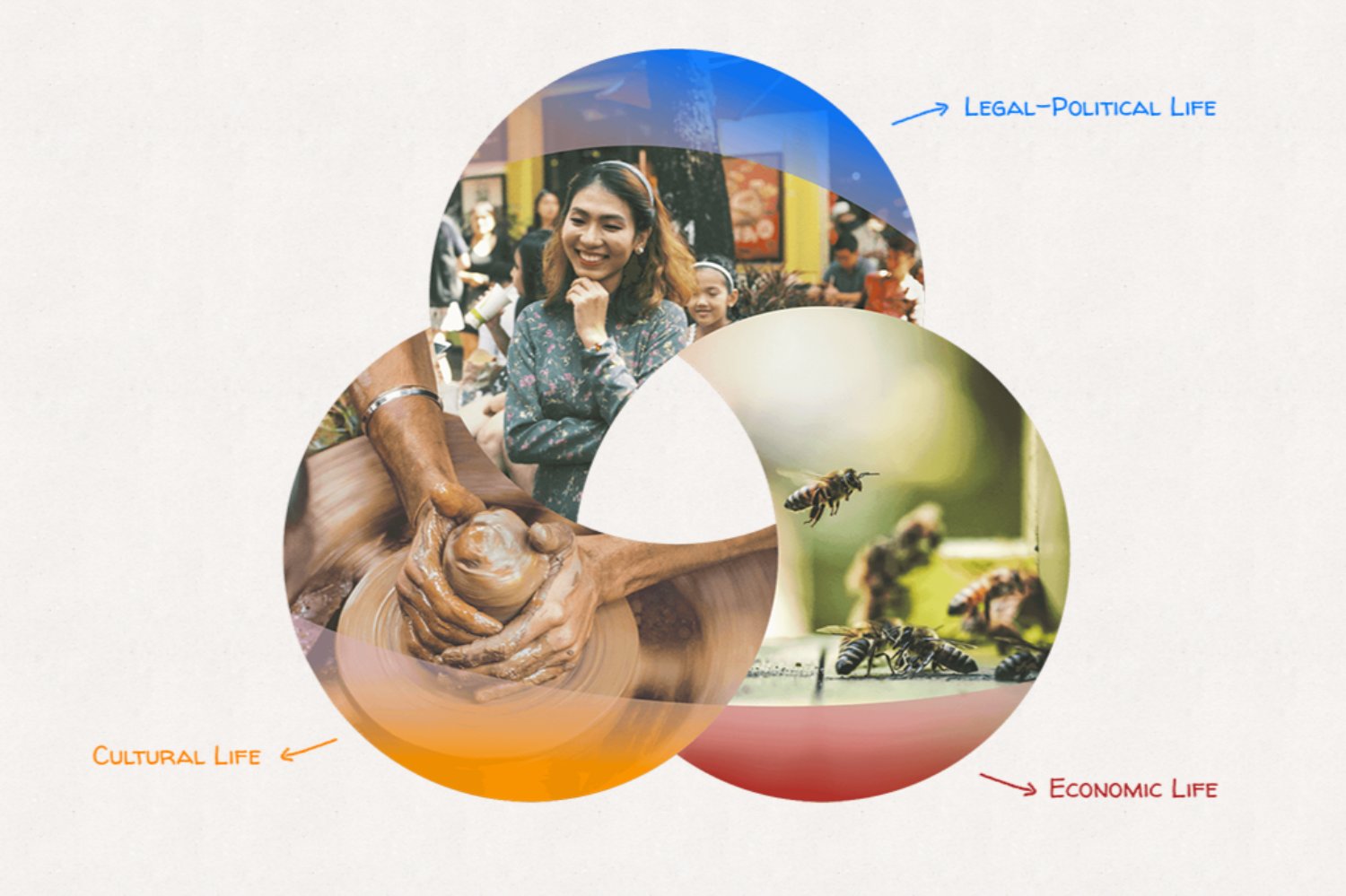
As human beings we have three capacities: thinking, feeling and acting. Each of those capacities have a correspondence with the different spheres of the society and are based on an universal value: the freed thinking for the cultural life, the feeling of equality for the other in the legal sphere and the value of solidarity in the economic life. The autonomy of each sphere and the striving for each appropriate principle would open the possibility for a healthy, productive and peaceful society.
News

Paths to Maturity: Meeting Today’s Youth
At this year’s Youth Society Parzival’s gathering, “Principles of Healthy Social Life”, held in August in Georgia, Gerald Häfner talked to Em ...

“War is unacceptable!”
Gerald Häfner, Head of the Social Sciences Section at the Goetheanum, expressed extreme shock at the “Russian invasion” of Ukraine. If the armed ...
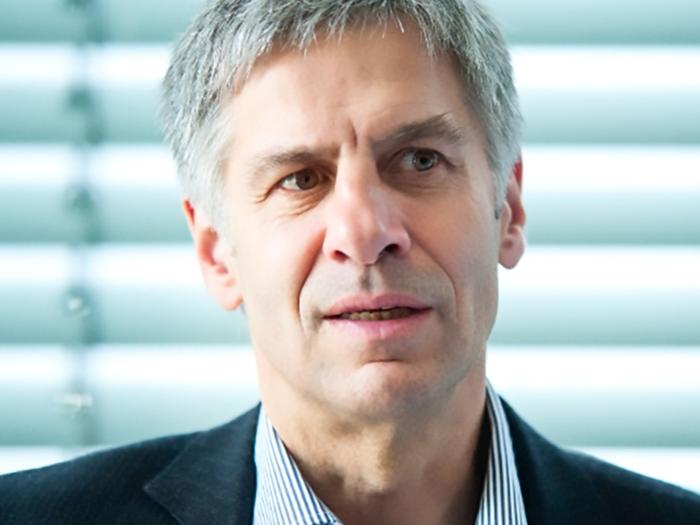
The gift of the pandemic
Some countries are eliminating their Covid restrictions, others are maintaining the status, and still others are stepping up their measures. ...
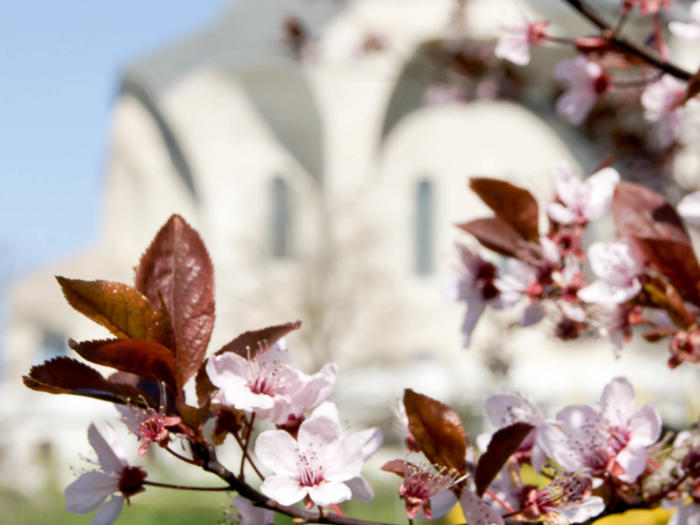
How the Goetheanum is showing flag
A rough wind has been blowing towards Anthroposophy in the media for months. With Gerald Häfner, member of the leadership of the Goetheanum in ...

Future of Democracy
The Social Science Sections of Brazil and Dornach, Switzerland, in cooperation with the initiatives ‘Dinero&Conciencia’ and ‘Banca Ética’, ...

Unconsciously they have chosen the threefolding
The election for the German Bundestag is three weeks away and in Berlin the SPD, FDP and the Greens are negotiating what policies they want to ...

Understanding History from the Future – Crisis as Opportunity
Crises synchronize and at the same time individualize us. We all follow the same guidelines, we are all in the same boat – and yet we are suddenly ...

Gerald Häfner on the death of George Floyd
The death of Georg Floyd has triggered emotions all over the world. What lessons can be learned from this event?
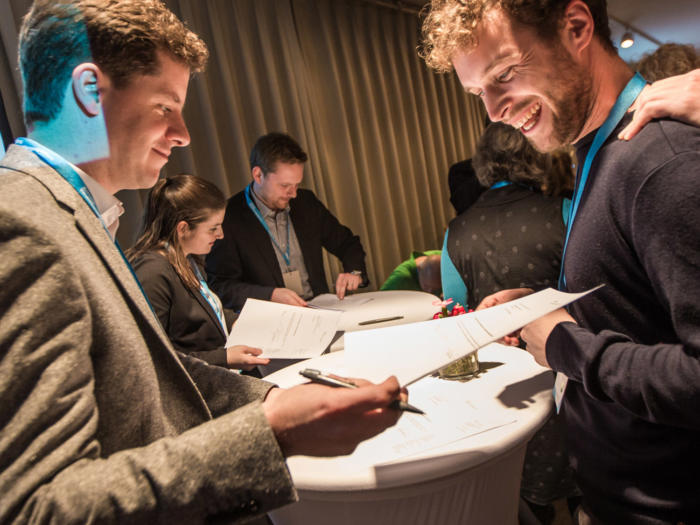
Steward ownership
Gerald Häfner, the head of the Social Science Section at the Goetheanum, has, in collaboration with others, developed a draft bill on ‹steward ...
Pioneers of social change at the Goetheanum
Some 180 participants exchanged views with people from different countries and cultures at the first World Goetheanum Forum from 28 to 30 ...
Ethical Individualism: Transforming Self and Society
It is by placing itself in constant places of risk that the human identity grows and develops. Can we take up the challenge of human suffering in ...
Video Series
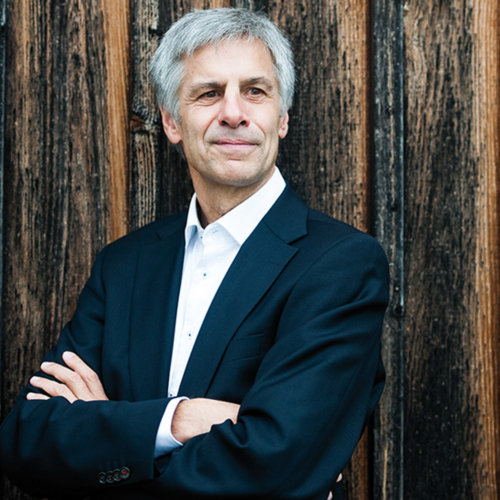
How do we want to shape the world?
A series on Goetheanum TV
How do we want to shape the world? The question sounds presumptuous. But it is very real: it is we who are poisoning the soil, air and water, oppressing people and producing wealth alongside poverty. And we are the ones who can change that. Nobody else.
I want to meet people to get to know viable thoughts for a new world. For this I meet people and ask them: How do we want to shape the world?
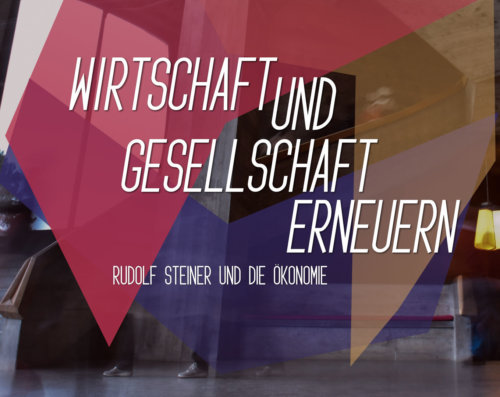
✪ Renew economy and society
A series on Goetheanum TV
Money determines our lives and actions, far more than we want. Everything depends on money, everything pushes towards money. Profit is considered the most important goal of the economy, money the decisive measure of value. Those who don't have money - or not enough - don't have a good life.
What were the ideas that Rudolf Steiner developed 100 years ago in his 'National Economic Course'? Can they contribute to the transformation that is so urgently needed right now?

The world from inside · Live conversations
A series on Goetheanum TV
Anthroposophists are interesting people. They are always great for giving new, surprising perspectives. They are mindful of the earth, of life, of people and of money. We owe them ethical banks, biodynamic agriculture, Waldorf schools, curative education, anthroposophical medicine and much more.
But now, in the pandemic, they often appear as remote weirdos. At least that's what people like to say. Or maybe they just bring new, different insights that need attention and time to understand - what is it precisely that is painfully missing in the polarizing public debates?
This series is in german.
